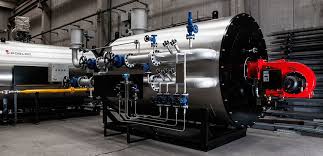
Дек . 12, 2024 09:32 Back to list
hot water boiler types
Understanding Hot Water Boiler Types
Hot water boilers are essential components in both residential and commercial heating systems. They provide hot water for heating spaces and, in some cases, for domestic use. Selecting the right type of hot water boiler is crucial for efficiency, performance, and comfort. This article will explore various types of hot water boilers, their features, and their applications.
1. Conventional Hot Water Boilers
Conventional hot water boilers, also known as traditional boilers, operate using either natural gas, propane, or oil as fuel. They typically consist of a tank that stores hot water and a burner that heats the water to a predetermined temperature. The most significant advantage of conventional boilers is their ability to provide a large volume of hot water on demand, making them suitable for homes with high hot water usage. However, their efficiency can vary—older models may consume more energy than modern, high-efficiency units.
Combination (combi) boilers have gained popularity in recent years due to their space-saving design and efficiency. They serve two functions providing central heating and supplying hot water for domestic use. Combi boilers heat water directly from the mains supply, eliminating the need for a separate water storage tank. This feature makes them ideal for smaller households or apartments. Furthermore, they are generally more efficient than conventional boilers because they heat water only when needed, reducing energy waste.
3. System Boilers
hot water boiler types

System boilers are similar to conventional boilers but come with a built-in storage tank. They work well for homes with multiple bathrooms and high hot water demand without requiring a separate cold water tank. The system boiler heats water and stores it for immediate use, ensuring a consistent supply. This type is efficient and requires less installation space compared to traditional systems, as many of the components are already integrated.
4. Condensing Boilers
Condensing boilers are among the most efficient boilers on the market. They utilize a unique method that captures heat from the exhaust gases that would otherwise be lost. By reusing this heat, condensing boilers can achieve efficiency ratings of over 90%. They can be classified as either gas or oil boilers and are suitable for large commercial applications as well as residential settings. The upfront cost can be higher, but the long-term savings on energy bills make them a worthwhile investment.
5. Electric Boilers
Electric hot water boilers offer an alternative for those without access to gas. They operate by using electric heating elements to heat water. While they may not be as efficient in larger applications due to the higher cost of electricity, they are ideal for smaller households or specific applications where gas supply is unavailable. Electric boilers can be used for radiant heating, hydronic heating systems, or domestic hot water production.
Conclusion
Selecting the right hot water boiler is vital for ensuring efficient heating and hot water supply in any setting. Whether you choose a conventional, combi, system, condensing, or electric boiler, consider factors such as the size of your household, hot water demand, fuel availability, and overall efficiency. Evaluating these elements will help you make an informed decision that meets your heating needs while considering long-term energy costs. With advancements in technology, many options today offer superior efficiency and performance, making it easier than ever to find a boiler that suits your requirements.
-
Efficient Biomass Fired Hot Water Boiler | AI Heating Solution
NewsAug.01,2025
-
High-Efficiency Gas Thermal Oil Boilers | HPT Models
NewsJul.31,2025
-
Oil Fired Hot Water Boilers Sale - High Efficiency & Affordable
NewsJul.31,2025
-
High-Efficiency Commercial Oil Fired Steam Boiler for Industry
NewsJul.30,2025
-
High-Efficiency Biomass Fired Thermal Oil Boiler Solutions
NewsJul.30,2025
-
High Efficiency Gas Fired Thermal Oil Boiler for Industrial Heating
NewsJul.29,2025
Related PRODUCTS






















